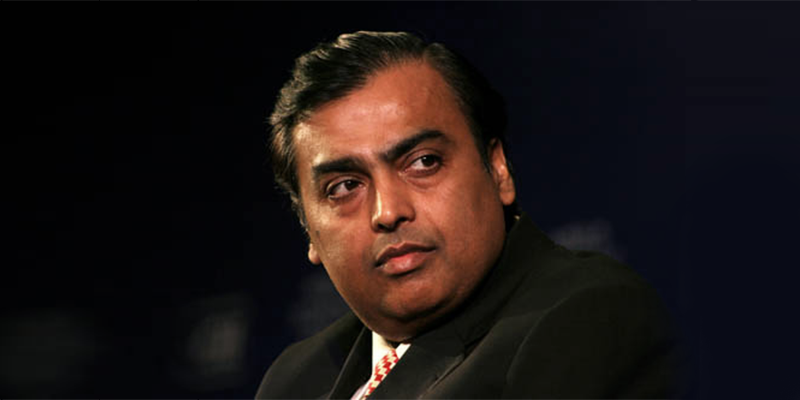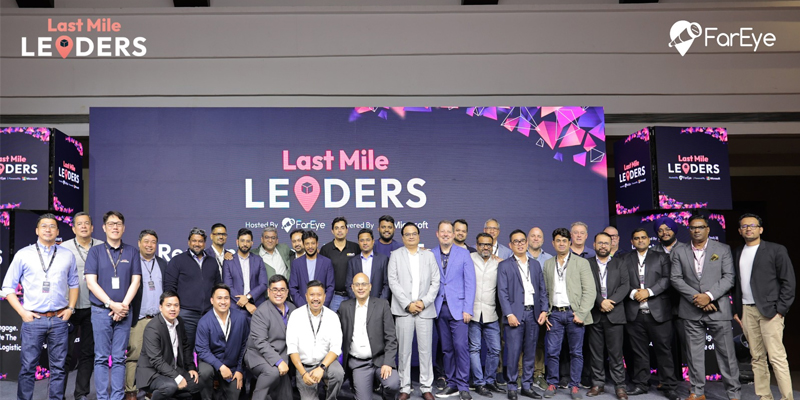13 quotes by Mukesh Ambani on entrepreneurship, and importance of giving back
Born into a middle-class household to Kokilaben Ambani and Dhirubhai Ambani, Mukesh Ambani was not born into riches as believed, his father was still struggling to lay the stones to the massive empire that Reliance Industries is now. Drawing parallels to great kings of yore, the heirloom might have been mighty by all accounts, but it was due to Mukesh Ambani’s hard work, determination, and keen business sense that the kingdom became a global conglomerate.
It was always a long and arduous journey for Mukesh Ambani, who holds the title of the richest Indian and is listed by Forbes as the 18th wealthiest person in the world. One which involved internal family strifes, constant business takeover threats, and pivoting business models and products according to the times. But amidst all these drawbacks, he never failed to push the boundaries and help steamroll his business success into the universal acclaim that it presently holds. Which for obvious reasons makes him a benchmark for entrepreneurs world over to take notice and draw lessons from.
Here are some of his quotes on various aspects of business and life that he deeply cares about:

Identify the problem and provide solutions
Mukesh Ambani has time and again maintained that an entrepreneur’s raw motive should not be just about money. An entrepreneur needs to focus on providing value to the consumer, once you crack that formula the monetary benefits follow suit. At the core of your business venture must be to identify the problem and provide wholesome solutions that resonate with the people.
“The first piece about entrepreneurship was taught to me by my father after I returned from the US. I asked him for my roles and responsibilities and my job, and he told me if I want to do a job, I have to be a manager. An entrepreneur will figure out what to do.”
“I don’t think that ambition should not be in the dictionary of entrepreneurs. But our ambition should be realistic. You have to realize that you can’t do everything.”
“It’s not solving problems, but it is finding the problems. Once you find the problem, then you solve it.”
“The Reliance DNA started from my father when he founded Reliance. At that time, he had ingrained into us that as a business, you must solve problems and the economic value is more a byproduct of that.”
Why the internet is the game-changer
Reliance Jio changed the entire landscape of India’s telecom industry with its low-cost data plans. In an already competitive industry, Jio’s ‘free voice for life’ and the fact that they didn’t charge anything for the initial six months meant that they eventually acquired more than 10% market share even after they started charging a pittance after the six-month trial. Mukesh Ambani’s pet project Jio turned the industry upside down and their competitors had to scramble for ideas and resort to freebies of their own to lessen the impact of the blow.
“Data is the oxygen of the digital economy and one cannot deny Indians of this vital and life-sustaining resource.”
“India missed out on being part of the first three industrial revolutions, but with connectivity, data, and Artificial Intelligence (AI) driving the fourth industrial revolution, India has the opportunity to lead it.”
“The Indian mobile market is now overflowing with data. We have to empower 1.3 billion Indians with the tools needed to flourish in a digital marketplace”
“Mahatma Gandhi’s dream of self-reliance can be attained by making use of internet and technology.”
“Broadband and digital services will no longer be a luxury item – a scarce commodity – to be rationed amongst the privileged few.”
Giving back as much as you receive
Considered to be a benevolent philanthropist Mukesh Ambani has always talked about how corporate social responsibility (CSR) activities should be an integral part of the company. He stresses how companies should adopt a model where they think of CSR as something that would fetch ‘social returns together with financial returns’. “It has to be an organic part of the business”, he adds.
“Businesses will not only have to act as the trustees of their shareholders or owners but will also have to care for the society by the virtue of the license given to them by the society itself. The businesses should be measured on social returns together with financial returns.”
“We will have to move from the model of CSR to a model of continuous social business through enterprise and entrepreneurship where societal needs and gaps are seen as duties as opposed to just business opportunities.”
“As long as we place millions of Indians at the center of our thought process, as long as we think of their welfare, their future, their opportunities for self-realization, we are on the right track.”
Mukesh Ambani is one of those names whose success in the business world is a testament to India’s rise as a business force to reckon with. The story of Reliance gives hope and fortitude to all the entrepreneurs for generations to come. A man with no capital, no connections and an Ivy League degree showed the world what is possible with grit, resilience and hard work, Mukesh Ambani is adding more feathers to the legacy that his father left.









